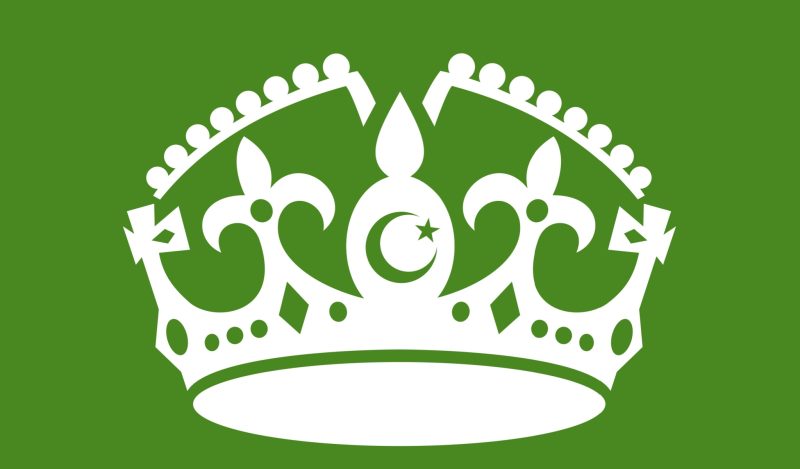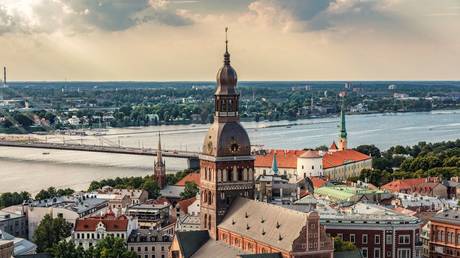Our Version of a Theocratic State


Brazil is the only country in the world mandating Covid-19 vaccines for children aged 6 months to 5 years. In the end, the arguments of those who support this are similar to those of Islamic State members.
Let’s recall a bit of history. Brazil was the last country in the entire Western world to abolish slavery, which happened in 1888 with the Lei Áurea. In Brazilian society at that time, while some fought against slavery, others wanted to preserve it. Abolition only came when the majority turned against it. During much of the abolitionist struggle, those in favor of freeing the slaves had a strong argument: Brazil was the only country in the Western world still practicing slavery. The last one.
For comparison, the abolition of slavery occurred in Chile in 1823, in Mexico in 1824, in Argentina in 1853, and in the US in 1865. In other words, Brazilian abolitionists cited the example of the US for more than 20 years until they achieved their goal.
When we talk about individual freedoms, it is difficult for an open and free country, with a culture reasonably similar to neighboring countries due to intense cultural, commercial, and tourist exchange, to evolve alone. There is always the influence of what other societies are doing. This applies to all aspects of individual freedoms.
Another example is the right to same-sex marriage. Initial recognition came from Belgium in 2003. Two years later, Canada and Spain recognized this right. In Brazil, France, and Uruguay, recognition came in 2013. In the US, it was in 2015, and thus it followed throughout the Western world, one country after another.
2024 and Covid-19 Vaccines in Brazil
Brazil is the only country in the world mandating Covid-19 vaccines for children aged 6 months to 5 years. No other country on the planet does this — not even Iraq, Afghanistan, Libya, or Syria.
To be clear: it is 2024, and Brazil is the only country in the world requiring Covid-19 vaccines for babies as young as 6 months up to 5 years old. The only one.
Moreover, while Brazil mandates this, countries like the United Kingdom, Germany, Sweden, Denmark, and Switzerland — known for their respect for their populations — do not even recommend the vaccines for children.
In these five example countries, Covid-19 vaccinations for children occur only in exceptional cases: only for very sick children, following a rigorous medical evaluation and with a prescription. Even in these specific cases, the governments do not mandate it.
The reason these countries do not recommend it? The risk outweighs the benefit. It’s that simple. Some of these countries initially recommended — but did not mandate — the vaccines for young people. For instance, Denmark did so, but in mid-2022, the Danish Minister of Health, Soren Brostrom, publicly apologized for ever recommending them. “The vaccines were not predominantly recommended for the benefit of the child,” he stated.
A significant study that influenced the decision not to mandate and for most countries not to recommend the vaccine was conducted by a team led by Vinay Prasad, a renowned epidemiologist from the University of California, along with other prominent researchers. This study was published in the BMJ – British Medical Journal, one of the world’s most prestigious medical journals, at the end of 2022.
The study concluded the obvious for a low-risk group such as healthy children and young people: it would be necessary to vaccinate between 30,000 and 40,000 young people to prevent a single hospitalization due to Covid in this group, but these vaccinations would cause 18.5 severe adverse events, including myocarditis and pericarditis, leading to between 1.5 and 4.6 hospitalizations. In other words, more hospitalizations would occur due to vaccine adverse events than would be prevented by avoiding Covid hospitalizations.
Meanwhile, in Brazil, vaccination is mandatory for all children, even perfectly healthy ones, with no room for dialogue.
The Phenomenon of the Protective Curtain
One of the things that most interests me throughout the pandemic is the behavior of societies. Regarding vaccines, there is no dialogue. There is no debate; facts and data are ignored.
I can’t think of a single issue related to individual freedoms where Brazil stands in opposition to the world, isolated, doing things differently from all other countries. None.
And dialogue doesn’t help. You mention that Brazil is the only country doing this, and it goes in one ear and out the other. Talk about vaccines? People lower a protective curtain, and no argument will be heard or considered.
Only one thought remains for these people: “We are right, and the world is wrong.” This is exactly the mindset of an average citizen in Iraq or Syria during the Islamic State era when they saw gays being thrown off buildings. There might be variations: “So what if the world does it differently? We are a sovereign country.”
For a while, I conducted tests to see how people reacted to the argument that Brazil is isolated from the rest of the world. A few months ago, I was at a bar in my city, drinking beer and eating skewers. A long-time friend, young, under 30, and president of the local PT, the center-left party of President Lula da Silva, approached with his girlfriend and a local journalist. I invited them to sit.
After some conversation, when they asked how I thought the president was doing, I said I disapproved. I explained that Brazil is the only country in the world mandating Covid-19 vaccines for children, while Germany, the United Kingdom, Sweden, and Denmark don’t even recommend them. “Are you anti-vaccine?” someone asked. “Are you saying that concluding that Germany and the United Kingdom are right and Brazil is wrong makes me anti-vaccine?” I asked back. I got no responses. For some reason, they feel they don’t need to reflect or respond. In the end, they clearly supported the mandate. It’s exactly like being called an “infidel” by members of the Islamic State.
A few days ago, I was at a restaurant with another friend. He is a lawyer and a human rights activist with the Brazilian Bar Association. I introduced the topic by talking about cultural influences. Then, I asked if he could remember any individual freedom that only Brazil handles differently from the rest of the Western world. He couldn’t think of any. I mentioned child Covid-19 vaccination, explained that Brazil is the only country mandating it, and listed the countries that don’t even recommend it. It didn’t generate any outrage. I pushed for a comment: “Who guarantees that these countries are right?” he asked. Certainly, a question that an ordinary citizen sympathetic to the Islamic State might ask in Baghdad.
To a third friend, very intelligent, while we were having a few beers, I introduced the topic as I did in this article. I started by explaining the power of the phrase: “Brazil is the only country in the world doing such a thing,” and continued talking about slavery, same-sex marriage, and even giving examples where the US was the last. I mentioned Rosa Parks in the US refusing to give up her seat on a bus that segregated seats for blacks and whites. Indeed, the US couldn’t stand alone on that issue. I explained that probably, those who were against it at the time said, “Only the US does this absurdity.”
Knowing the response pattern, I didn’t force this friend to see if he was outraged. I presented the problem and asked for help to understand why no one is outraged by the fact that Brazil is alone, like the Islamic State throwing gays off buildings.
“Logical reasoning does not come before moral barriers,” this friend explained. Without a doubt, the competent marketing of Covid-19 vaccines managed to turn the commercialization of the injectable pharmaceutical product into a moral issue. And the same phrase explains the execution of gays by the Islamic State.
Recently, on television, a judge clearly explained: if Brazilian parents do not want to vaccinate their children with Covid-19 vaccines, the state can take the child from the parents. In other words, if Brazilians distrust the recommendations of Brazilian authorities and prefer the recommendations of Germany, the United Kingdom, Sweden, Denmark, and Switzerland, they will have their children taken away as punishment.
In my view, taking a child from their parents is as brutal as throwing gays off buildings.
Before concluding, let’s state the obvious: the Covid-19 virus in Brazil is the same one circulating in Europe. The vaccines offered here for children are exactly the same as those European countries could offer to their children. And the biological makeup of Brazilian children is exactly the same as that of other children around the world. There is no logical reason for the risk-benefit calculation to be different.
Constant Oppression
Now, in June 2024, the judiciary of a southern state of Brazil, Santa Catarina, ordered that parents vaccinate their two young daughters against Covid-19 within 60 days. The first step of coercion, before kidnapping the children, is to threaten with a fine between $20 and $2,000 per day while the children remain unvaccinated.
“As citizens marked by ethics, we remain with the unwavering commitment to the health and integrity of every human being, especially children and adolescents, respecting science in favor of life,” wrote the judge in the decision, believing himself to be a heroic defender of science.
Let it be recorded in history: around here, there is no use saying “only Brazil does this” when we talk about Covid-19 vaccines. Society as a whole ignores it, just as it was pointless to tell the Islamic State that “only you do this” regarding the killing of homosexuals. In both cases, the reaction is similar: no reflection.



